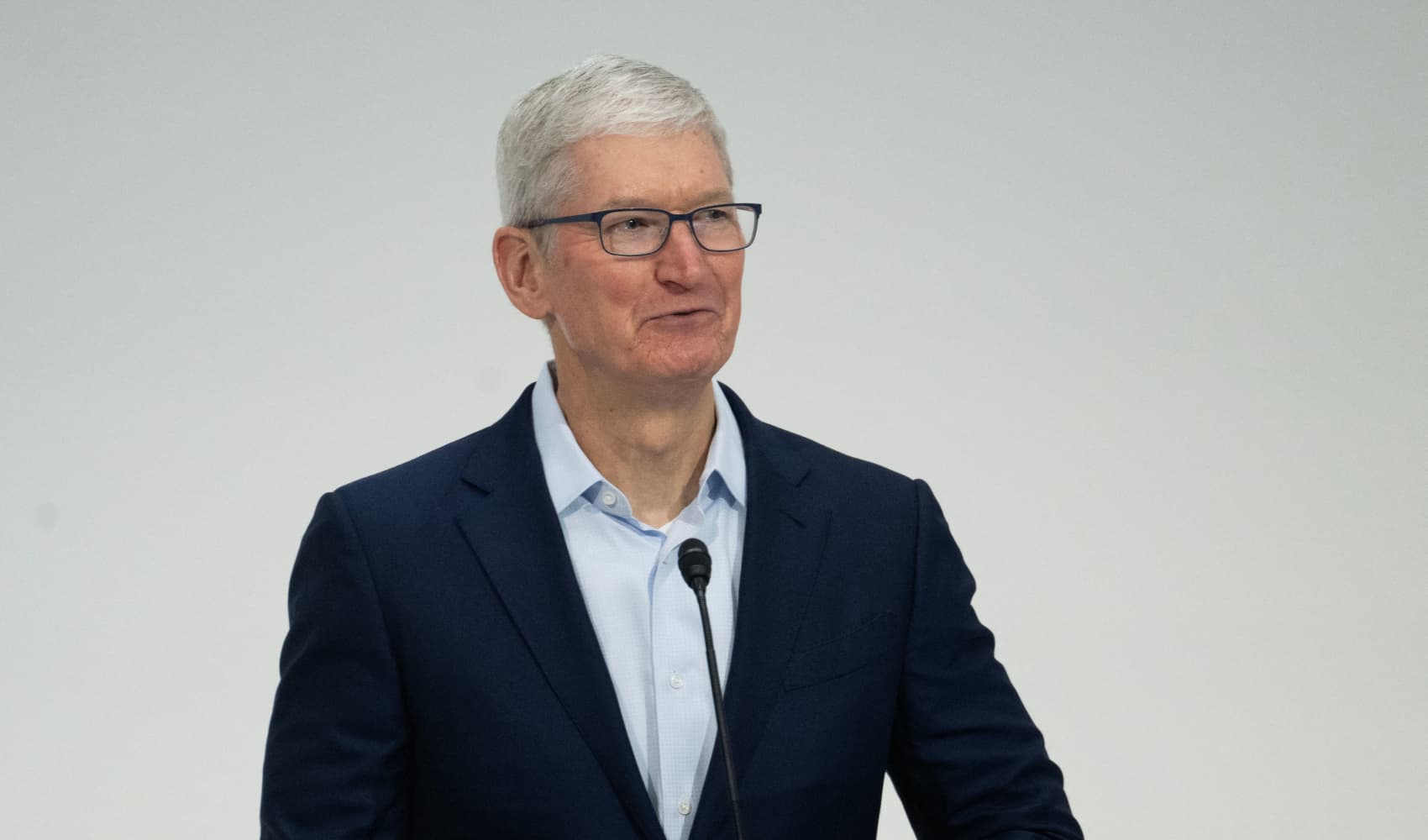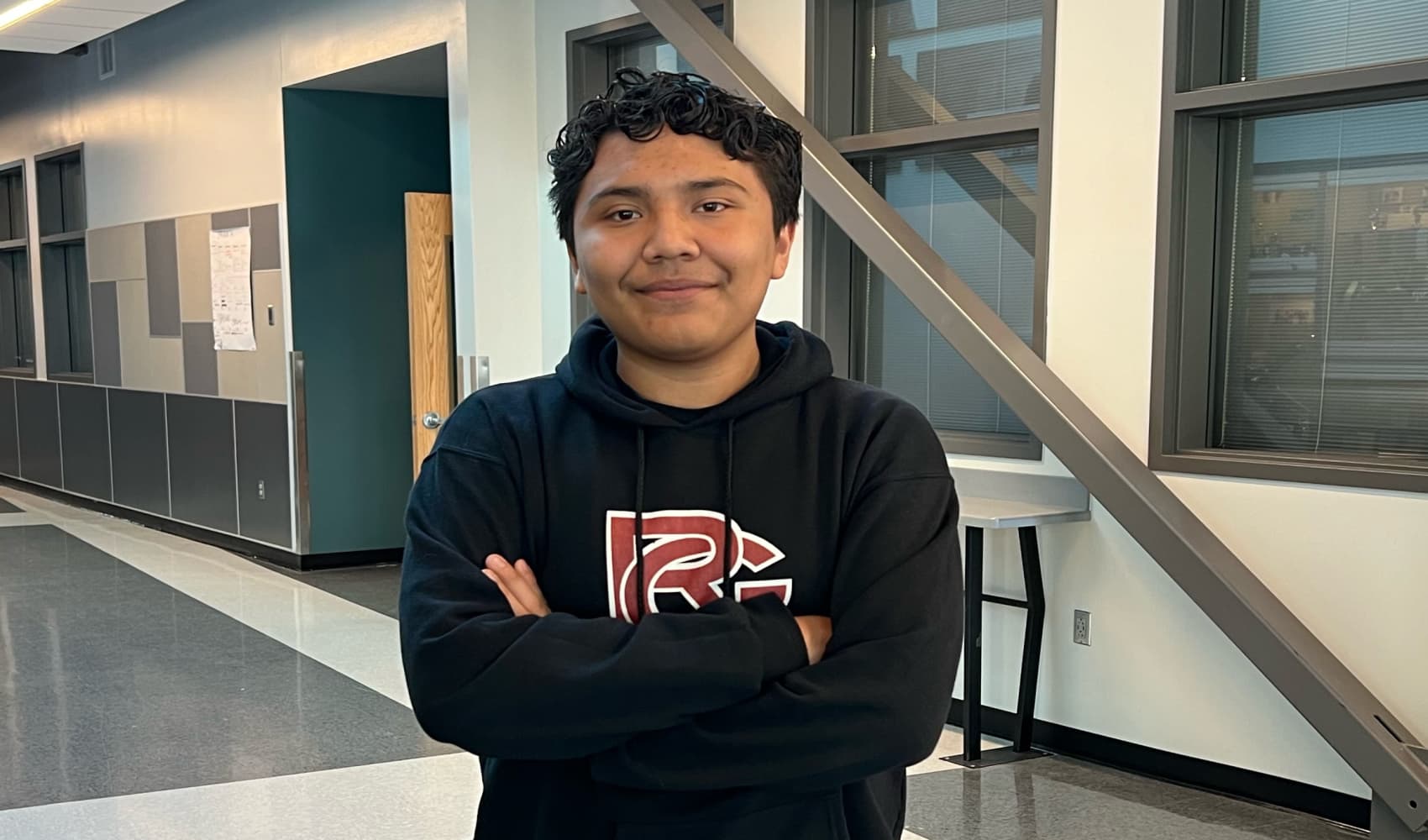
You get your first job out of college. You can finally breathe a sigh of relief — you have post-grad plans! You can confidently answer that nerve-racking question: What are you doing after graduation?
But as soon as you accept that job offer, the train leaves the station pretty quickly! A whole lot of big financial decisions come at you fast like getting an apartment, paying your bills and setting up a budget to make sure your math checks out.
One of the most shocking things is when you get that first paycheck — and how small it really is! You knew some taxes would be taken out but most of us are unprepared for how much really comes out.
"A lot of times when people accept their new job offer, they think, 'Oh my goodness,' like $40,000 a year is like winning the lottery when you've gone from making like $4,000 a year over the summer, you know?" said Sophia Bera, a financial advisor at Gen Y Planning. "And so I think what people don't realize is, then how little that actually translates to in their net pay."
Get Tri-state area news and weather forecasts to your inbox. Sign up for NBC New York newsletters.
Let's do the math
Say you agree to a salary of $65,000. What is your actual take-home pay?
The biggest chunks that come out are taxes — both federal and state. And, if you work in New York City, like so many college grads dream of, you also pay New York City tax.
Money Report
Federal tax rates are graduated depending on how much you make and you can check your brackets here.
Taxes vary from state to state, but they typically range from 0% to 13%. (Seven states have no income tax!) California, Hawaii and New Jersey have the highest income taxes in the country, while Florida, Alaska and Texas are among those with no income taxes.
Withholdings are an amount from your paycheck taken out to pay federal and state income taxes. They are dependent on not only your income, but also your number of dependents, which, if you're right out of college, is typically 0 or 1.
More from College Money 101:
10 tips for negotiating your first job offer (and every one after that!)
An easy guide to help college students set up their first budget
Feel like you're broke all the time? Here's how you can change that
Additionally, Social Security and Medicaid are withheld from your paycheck during every pay period. You'll see 6.2% withheld from your paycheck for Social Security, plus another 1.45% for Medicare. Your employer pays an equivalent share, for a total 15.3%.
Pretax items like health-care premiums and 401(k) contributions can also be deducted from your paycheck.
"It's going to be very different for someone making $80,000 or $40,000 or $100,000," said Douglas Boneparth, a financial advisor at New York City-based Bone Fide Wealth.
Generally speaking, you should be prepared for taxes and other deductions to be around 30% of your gross income. That doesn't mean it will be exactly that amount — it could be more, it could be less. And, you should absolutely do the math to figure out your exact rates. But, just use that to get your head around the fact that a good chunk of your salary goes to taxes.
To figure out what the take-home pay would be in that scenario, simply multiply the salary times 0.70. (That's 70%, which is what's left after you deduct 30%.)
That means, in the case of our $65,000 example, your take-home pay would be around $45,500 per year. Divide that by 26 (assuming you are paid every other week) and each paycheck will be around $1,750.
A warning for freelancers
One really important thing to note is if you accept a freelance job, you have to ask if your employer is taking taxes out of your paycheck or not.
If they are, the above calculations are a fairly good gauge of your take-home pay, though you probably won't have deductions for a 401(k) or health-care benefits. (You'll have to make those on your own, so don't assume that's just money back in your pocket.)
If your employer doesn't take taxes out, then you'll need to manage those payments yourself. Typically, that means making quarterly estimated tax payments. You'll also pay both the employee and employer portions of the taxes for Social Security and Medicare. Advisors recommend setting aside about one-third of your gross 1099 income in a separate account to pay your taxes. If it's separate, it will be ready when your tax bill comes due.
Since your take-home pay is actually less than your gross pay, Bera said she recommends negotiating your salary (or freelance contract) — even if it's your first job out of college.
"A lot of times people are afraid to negotiate. And I think: It's worth the ask, right?" Bera said. "It's worth asking, 'Hey, here are some things that I bring to the table.'"
You would be surprised. Most hiring managers go in prepared to negotiate and don't give you their highest offer. So, if you ask for more money, and make the case for why you deserve it, you just might get it!
And, it's important to make sure you're enrolled in direct deposit, so your paychecks are automatically transferred to your bank account.
"You're not walking around with a check and you can use your money right away," Boneparth said. "It would be very beneficial to have your net pay go into a checking account automatically."
And, you should also set up a budget. That way, you don't actually think you have more than $1,000 to spend every pay period! The reality is, your extra spending money after you pay your rent and other bills will be more like a couple hundred dollars.
Your health-insurance options
One of the other big decisions to make after you graduate college is choosing the right health-insurance plan. In the U.S., you can usually stay on your parents' insurance plan until the age of 26.
For Ruby Sanchez, an administrative assistant to a financial advisor in New York City, being able to stay on her parents' plan was helpful when transitioning into full-time work.
"I talked to my dad about it and he helped me on that end about the decision on health insurance," Sanchez said.
However, if you can't stay on your parents' plan, and you don't yet have a job that offers health care, there are many different options. Bera said she recommends finding a plan that best fits your situation. So, if you only go to the doctor once a year and do not anticipate high health-care costs, Bera said to consider opting for a high deductible health-care plan.
A high deductible health-care plan typically has a lower monthly rate but then requires you to cover more of your health-care costs yourself. A deductible is the amount you have to pay for visits to doctors, labs, etc. per year before the insurance kicks in. These plans can also be combined with a health savings account, which allows you to pay for certain medical expenses with pretax dollars. That might not have seemed like something you cared about before but now that you know how high taxes are, you might!
And if you get a job and your company offers health insurance and you choose an option that's not only cheaper for you, but also your company, then your employer may make contributions to your health savings account, Bera said.
However, a high-deductible health insurance plan has its caveats.
In the event of a more serious medical emergency, a high-deductible health plan can result in very high out-of-pocket costs for you, something a lot of recent grads don't always have, said Kristin McKenna, a financial advisor at Boston-based firm Darrow Wealth Management.
"If folks don't have the money to afford their care, they may not get care at the end of the day," McKenna said. "They shouldn't sacrifice their ongoing health and preventative care and things like that."
So, yes. Younger people do tend to be healthier and need to save money. But that is an important note — you are still making a gamble that you won't get really sick or need expensive medical care.
On the other hand, if you already know you have health-care issues and see doctors more frequently, you might consider a low-deductible plan — those have higher monthly costs (premiums) but lower deductibles and therefore more robust coverage.
"At the end of the day, you're weighing the costs against the benefits, and you need to know what kind of benefits that you need," Boneparth said.
As for other plans such as dental and vision insurance, McKenna said such benefits can be really impactful if your employer offers them. However, benefits like dental and vision insurance are expensive, so McKenna cautioned that you may not have those options if you work at a smaller company.
Just remember, if your employer offers a health insurance plan, that is great because it is a lot cheaper than if you had to get insurance on your own. But you will still have to pay a little bit out of every paycheck for your health insurance and you will likely have to pay for some of the cost of your medical care after the fact if insurance doesn't cover it all.
Understanding your 401(k) retirement plan
You wouldn't expect to have to think about retirement from the minute you get your first full-time job — but you do! A lot of companies will ask you to enroll in your 401(k) plan, where you contribute to your retirement account.
A 401(k) is a company-sponsored retirement savings plan where employees can contribute portions of their income, and their employers may match those contributions.
If your company offers one, you should absolutely take advantage of it. First, because your are able to invest with pretax dollars but also because a lot companies will match up to a certain amount. You have to decide how much you want to put in – and you need to try to max out the company matching. That's where if you put in, say, 6% of your salary, they match it with another 6%. As you will hear many financial advisors say — that's free money! Don't lose out on it because you didn't understand the options.
Bera and McKenna both said it's best to start investing in a 401(k) as early as possible. But you also have to be sure to tuck away some emergency savings that you can access quickly. A good rule of thumb is to put enough into your 401(k) to get the free match, while building emergency savings. Then boost your retirement contributions once you've hit your rainy day fund goal.
"The biggest thing is getting started. I think that's super important," Bera said. "Just do something — we can always change the investments later."
Bera recommends starting with a percentage in contributions that feels doable, and in the event it feels like too much, you can always adjust your contributions.
"I have a lot of clients regret not starting with their first job because they would have so much more money if they didn't start in like their third or fourth job," she said.
While McKenna said it's best to start as early as possible in a perfect scenario, she added that other factors like student loan payments can play a role in whether you should immediately start investing in your 401(k).
Nick Menghini, a sales assistant at Hearst Magazines, and Sanchez both said they invested in their respective companies' 401(k) plans once they started working.
Menghini added that he also started investing in a Roth IRA at the age of 18, saying that saving money was especially important as a recent college graduate. A Roth IRA is an individual retirement account that, like the Roth 401(k), you pay into with after-tax dollars but what you're saving on is you won't be taxed on that money when you withdraw it in retirement.
"It's something of importance," Menghini said. "And something I think, you know, college graduates should start [saving] as soon as they possibly can."
Boneparth said the most important thing is to first get a grip on your budget.
"You're just starting out," Boneparth said. "The goal here is to build as strong a foundation for yourself as humanly possible. So the first thing I would recommend anyone do is understand their paycheck ... how much money you have coming in each month," and what you have going out.
And as for making informed choices on which investments to choose, Bera, Boneparth and McKenna all recommended looking into your employer's 401(k) plan, online portals and even working with financial advisors when making the decision to start investing into a 401(k).
It may not be fun for you to learn about investing but this is your money and your future so it's critically important that you put in the effort to understand how much money you have, where it's going and how much it's growing (or not).
Taxes, taxes, taxes
Not only are taxes a rude awakening for a lot of people at their first job when they realize how much is taken out of their paycheck for taxes, but then you are also required to FILE your tax return in the first few months of the year.
Here's what you need to know: You have to file your tax return every year. If you owe the IRS and don't file or pay, you're racking up penalties and interest you'll have to reckon with at some point. They could even, eventually, garnish your paycheck.
If you are a salaried employee, where the company takes taxes out, you'll get a W2 form. If you are freelance or part time, you will either get a W2 or if the company doesn't take taxes out, a 1099 form. The downside of being 1099, as we've established, is that you have to manage your own taxes because your employer isn't withholding that money from your paychecks. But on the positive side, you can take more deductions, which will help you to either get a bigger return or, if you owe taxes, pay less.
As for filing taxes, if your financial situation is on the simpler side — you may be a W2 employee or not have a lot of investments — then Boneparth said online options like TurboTax can be good platforms for filing taxes.
However, if you're not comfortable with online platforms, then you can hire a CPA or a financial advisor to help with taxes.
"When life gets, you know, more sophisticated financially and you just don't have the time or you don't, you know, really want the pressure of doing something more complex," Boneparth said. "That's when it's probably a good idea to go hire an accountant."
Bera said VITA clinics, known as volunteer income tax assistance clinics, are a good option as well. These government-funded clinics generally help people who make $58,000 or less, people with disabilities, the elderly and people with limited English-language skills file taxes.
And don't count on a tax refund! We all like to assume we're getting money back but that is not always the case. So never assume.
But if you do get a refund, McKenna said a refund can be used in any way, depending on a person's cash needs. So, a tax refund can go toward emergency funds, rent, food and other essentials. Another option is to invest some of that refund toward a Roth IRA. (And yes, I'm sorry, these are the things you have to think about now! This is adulting.)
Of course, adulting doesn't mean you're not allowed to have any fun anymore! You can set aside a little of that refund to splurge on something. In fact, some advisors would encourage you to set aside a little fun money — you don't want to associate budgeting and being responsible with money with complete deprivation. That is the fastest way to lose your motivation — and your grip on your budget!
The most important thing to remember is that, from the minute you get that job offer, calculate what your take-home pay will be AFTER taxes. That is arguably the most important number you will need to know. It will dictate how expensive of an apartment you can afford, where you can afford to live, will you need roommates and will you have enough left over for spending money?
You would be surprised how being smart about money can snowball (in a good way) through the rest of your life. And, if you learn little by little, the whole process doesn't have to be overwhelming.
″College Money 101″ is a guide written by college students to help the class of 2022 learn about big money issues they will face in life — from student loans to budgeting and getting their first apartment — and make smart money decisions. And, even if you're still in school, you can start using this guide right now so you are financially savvy when you graduate and start your adult life on a great financial track. Meghna Maharishi is a senior at Cornell University majoring in industrial and labor relations. She is an intern for CNBC's investigative unit. The guide is edited by Cindy Perman.
Note: This story has been updated to clarify tax rates, responsibilities and penalties.
SIGN UP: Money 101 is an eight-week learning course to financial freedom, delivered weekly to your inbox. For the Spanish version Dinero 101, click here.
CHECK OUT: Meet a 26-year-old who earns $30,000 a month in ‘mostly passive’ income and built a $1.3 million net worth with Acorns+CNBC
Disclosure: NBCUniversal and Comcast Ventures are investors in Acorns.






